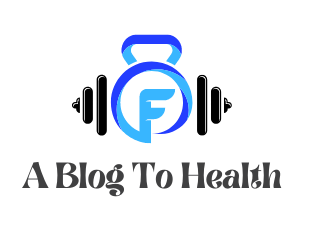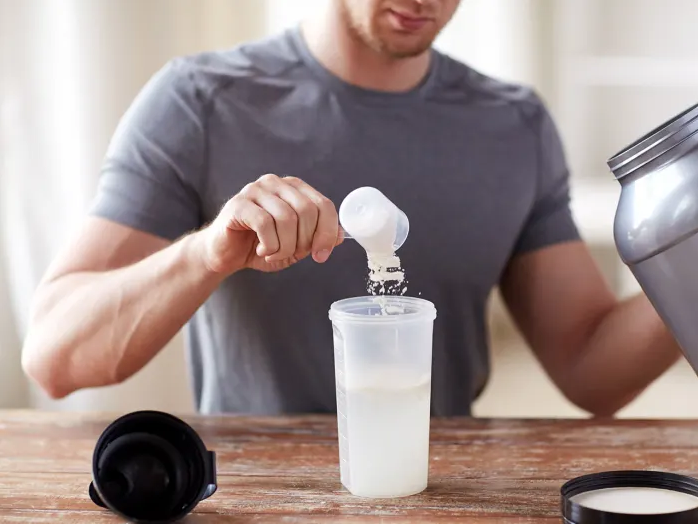Have you ever wondered if you can build muscle without working out just by increasing your protein intake? Whether protein alone can help you build muscle has been debated for years among fitness enthusiasts. This post will explore the science behind protein and muscle growth and answer the question, “Does protein build muscle without working out?”
Does Protein Build Muscle Without Working Out?
To begin, let’s dive into the basics of muscle growth. Muscles grow when they are subjected to stress or resistance, which causes micro-tears in the muscle fibers. When the body repairs these micro-tears, the muscles become stronger and larger. This is why resistance training, such as weightlifting, is often recommended for building muscle. However, protein also plays a crucial role in muscle growth and repair.
How Much Protein Do You Need to Build Muscle?
The amount of protein you need to build muscle depends on several factors, including your body weight, fitness level, and the type of exercise you do. Generally, it is recommended that you consume between 1.2 and 2 grams of protein per kilogram of body weight per day to support muscle growth. For example, if you weigh 70 kilograms (154 pounds), you would need between 84 and 140 grams of protein per day.
Protein is essential for muscle recovery because it helps repair the micro-tears in the muscle fibers caused by exercise. When you exercise, your body breaks down muscle tissue. Protein provides the amino acids necessary for muscle repair and growth. Consuming protein after a workout can also help reduce muscle soreness and improve muscle function.
So, Does Protein Build Muscle Without Working Out?
While protein is essential for muscle growth and repair, it cannot build muscle without some form of resistance training. Without resistance training, the excess protein you consume will simply be used for energy or stored as fat. To build muscle, you need to stress the muscles through resistance training and provide them with the necessary nutrients, including protein, to repair and grow.
Does Protein Help Muscle Soreness?
The question of whether protein helps with muscle soreness is a topic of debate and ongoing research in the fitness and sports industry.
Some studies suggest that protein, specifically whey protein, can alleviate muscle soreness when combined with other nutrients such as omega-3 fatty acids, amino acids, or antioxidants. However, other studies indicate that consuming protein after exercise may not reduce muscle soreness, but keeping protein levels high before a workout may help prevent muscle soreness.
Protein supplements may reduce muscle damage and soreness and improve muscle function following exercise. However, a recent study suggests that protein drinks may not be the best way to reduce muscle soreness and speed up recovery after a workout.
Overall, while there is some evidence to suggest that protein may help with muscle soreness and recovery, the effectiveness may vary depending on the type of protein and other nutrients consumed. It is recommended to consume protein-rich foods or drinks after a workout to aid in muscle repair, maintenance, and growth.
Does Muscle Soreness Mean Not Enough Protein?
Muscle soreness after exercise is a common experience for many people. It is usually caused by microscopic damage to muscle fibers during exercise. While muscle soreness does not necessarily indicate a lack of protein intake, protein is essential for muscle growth and repair. Consuming enough protein can help repair the micro-tears in muscles caused by exercise and promote muscle recovery.
Although protein is essential for muscle repair, no research indicates that a lack of protein causes muscle soreness. However, soreness can be a sign of muscle breakdown after exercise, and protein is needed to rebuild muscle tissue. Therefore, if someone is experiencing chronic muscle soreness, it could be an indication that they are not consuming enough protein to repair the muscle damage from exercise.
In short, muscle soreness does not necessarily indicate a lack of protein intake, but protein is vital for muscle growth and repair. Consuming enough protein can help repair the micro-tears in muscles caused by exercise and promote muscle recovery.
If someone is experiencing chronic muscle soreness, it could be a sign that they are not consuming enough protein to repair the muscle damage from exercise. However, other factors such as tension, stress, overuse, minor injuries, infections, or medication side effects can also cause muscle pain.
Will I Lose Muscle If I Don’t Eat Enough Protein for a Day?
If you do not eat enough protein for a day, you are unlikely to lose muscle mass, particularly if you meet your protein needs on other days. However, chronically consuming insufficient amounts of protein, especially during periods of inactivity, can lead to muscle loss over time.
The amount of protein needed to prevent muscle loss varies depending on age and physical activity level, but for most healthy adults, the recommendation is 0.8 grams per kilogram of body weight.

Protein plays a crucial role in building and repairing muscle tissue; without adequate protein, muscle synthesis can be impaired. Moreover, when you are in a calorie deficit to lose fat, higher protein intake can help prevent muscle loss and maintain muscle mass.
In terms of specific signs that you are not getting enough protein, swelling (edema) in the abdomen, legs, feet, and hands can be a possible symptom, but this is not always the case and can be caused by other health conditions as well.
Additionally, protein deficiency can result in symptoms such as fatigue, weakness, and muscle wasting, but this is more commonly seen in severe cases of protein deficiency, such as in kwashiorkor, which is most often found in developing countries.
So, missing out on protein for one day is unlikely to result in muscle loss; chronic inadequate protein intake can lead to muscle wasting, especially during periods of inactivity. Therefore, it is essential to meet your daily protein requirements to maintain muscle mass and overall health.
How Much Protein Is Needed to Build Muscle?
The amount of protein required to build muscle depends on various factors, such as weight, age, goals, and activity level. According to the National Institutes of Health, a sedentary person requires a minimum of 0.36 grams of protein per pound of body weight per day. However, for people who engage in intense workouts or have physically demanding jobs, the amount of protein needed may be as much as double the recommended daily minimum.
Several studies suggest that consuming 1.2 to 1.6 grams of protein per kilogram of body weight per day is optimal for muscle-building. For very active individuals, the recommended protein intake is between 1.2 to 2 grams per kilogram of body weight per day. In terms of daily protein intake per pound of body weight, a minimum intake of 0.54 to 0.77 grams of protein is recommended for those seeking to gain muscle, lose fat, and improve athletic performance.
A study published in the Journal of the International Society of Sports Nutrition suggests that consuming 1.4 to 2 grams of protein per kilogram of body weight per day is sufficient for building and maintaining muscle mass. However, Dr. Mandlik suggests that athletes seeking to build muscle may require a protein consumption range of 1.2 to 2.2 grams per kilogram of body weight per day, with at least 2 grams of protein per kg of body weight recommended for gaining muscle mass and strength.
For example, if you weigh 68kg (150 pounds), a protein intake of 109-150 grams per day would be recommended for muscle building.
Overall, the recommended protein intake for building muscle varies depending on weight, age, goals, and activity level.
A daily protein intake of 1.2 to 1.6 grams per kilogram of body weight or 0.54 to 0.77 grams per pound of body weight is suggested for those seeking to gain muscle, lose fat, and improve athletic performance.
A protein intake of 1.2 to 2 grams per kilogram of body weight per day is recommended for very active individuals.
Final Words
Increasing protein intake can support muscle growth and repair, but you cannot build muscle without resistance training. To build muscle, you must engage in resistance training and consume enough protein to support muscle repair and growth. Remember to consult with a healthcare professional or fitness expert to determine the appropriate amount of protein and exercise for your individual needs.
Frequently Asked Questions (FAQs)
- How fast can you lose muscle from not eating enough protein?
Muscle loss can begin in as little as three to four weeks of not working out and not consuming adequate protein. If you don’t eat enough protein, your body may start breaking down muscle to use as fuel. The speed at which this happens depends on several factors, including age and activity level.
- Is protein essential for muscle growth?
Protein is vital for muscle growth, but it doesn’t mean you should focus only on protein intake. Protein intake time plays a critical role as strength training stimulates muscle protein synthesis, but it also stimulates when you consume the right amount of protein.
- Does the body use protein for energy?
The body usually doesn’t use protein for energy. Still, if the body isn’t getting enough calories, stored fat, or other nutrients, it may break down protein into ketone bodies as an energy source.









Discussion about this post